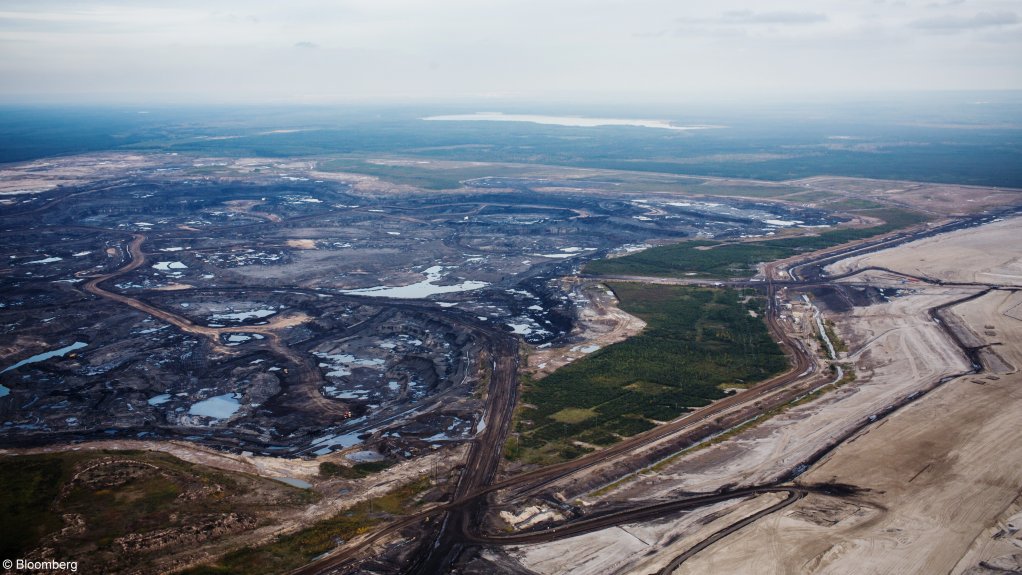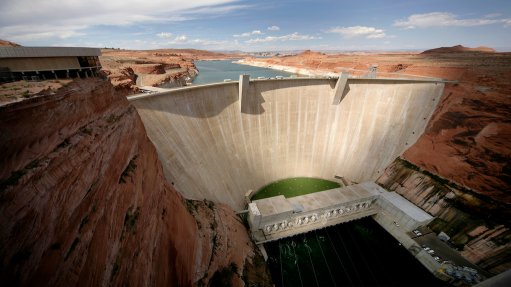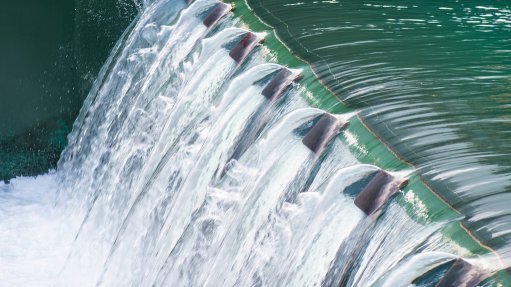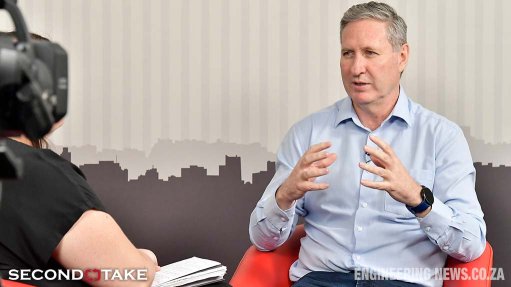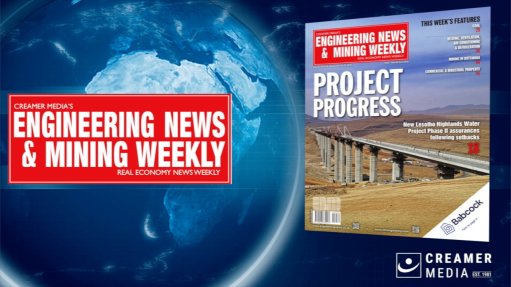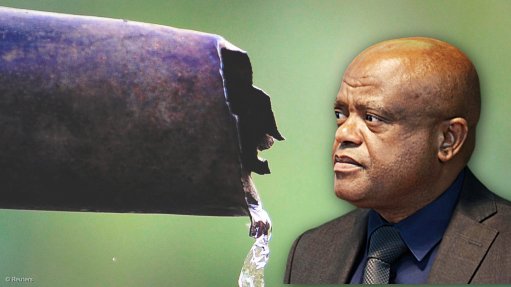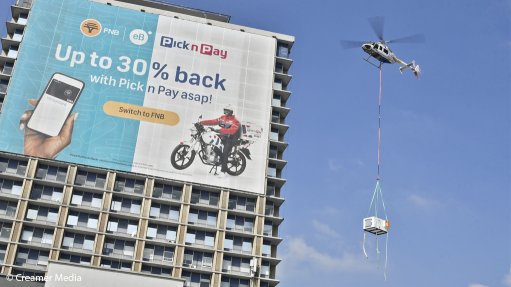A fortune lies in Canada’s oil sands. Many voters want to leave it there
CALGARY – At the Fish Place diner in Fort McMurray, booths are filled with oil workers in baseball caps and the parking lot is lined with pickup trucks sporting six-foot neon safety flags, a hallmark of the mining industry.
Fort McMurray is the regional hub for the oil sands that produce two-thirds of Canada’s crude, a status that puts the city carved out of Alberta’s wilderness at the heart of the October 21 federal election.
Robbie Picard, who heads an oil-sands advocacy group, calls it “the most important election we’ve ever had". Over a breakfast of eggs and cheese in the diner, Picard said that a second term for Prime Minister Justin Trudeau would cause “anxiety, depression and despair” in the city. “I’m terrified for our future,” he said.
In a campaign that’s been uncharacteristically personal in tone for Canada, energy and the environment is arguably the key policy area that will decide the election—and most agree the outcome of the vote will in turn be crucial for Canada’s energy sector.
Not only will it determine the future of carbon taxes, pipeline approvals and environmental regulations, it’s also a referendum on a dispute central to the country’s identity: Is Canada a global oil superpower or is it a leader in fighting climate change?
Trudeau and his Liberal supporters argue that it can be both, using proceeds from its oil and gas to fund green-energy solutions. He says he has supported the industry more than his Conservative predecessor, spending C$4.5-billion to save a key pipeline project from cancellation, taking flak from the environmental camp in the process.
But critics including his main challenger, Conservative leader Andrew Scheer, hammer him for abandoning a pipeline through British Columbia, failing to push through another line to Canada’s east coast and passing a law that they say will make major energy projects impossible to approve. Trudeau’s comment at a town hall meeting in Ontario back in 2017 that the country needs to phase out the oil sands has added to the sense that it’s not just specific policies but the industry’s very existence that’s on the ballot.
“Do we want our energy industry to be a global player, or do we want our industry to go into hibernation and we’ll just slowly shut it down?” Derek Evans, CEO of oil-sands producer MEG Energy, said in an interview. “That’s the point we’re at.”
The source of the dilemma lies in the expanse of forests and marshes surrounding Fort McMurray. These lands contain the world’s third-largest crude reserves, but the sticky bitumen extracted needs to be transported to market, and that means building hugely contentious pipelines. At present, there just aren’t enough of them for an energy sector that accounts for a tenth of Canada’s economy and a fifth of its exports.
In recent years, rising production from the oil sands has strained against limited pipeline capacity, exacerbated by delays to projects like TC Energy’s Keystone XL. That has weighed on regional oil prices and prompted companies including Royal Dutch Shell and ConocoPhillips to sell off Canadian assets in a $30-billion-plus capital exodus.
A year ago, the pipeline pinch reached crisis proportions, sending Canadian heavy crude prices crashing below $15/bbl and prompting Alberta’s government to intervene with mandated production cuts to stave off a full collapse. While prices have rebounded, the situation remains tenuous, hitting Alberta’s economy hard and inflaming opposition to Trudeau’s federal government.
The political predicament is encapsulated in the proposed expansion of the Trans Mountain pipeline, which carries the heavy crude extracted near Fort McMurray about 1 150 km westward to a Pacific port near Vancouver.
In 2013, then-owner Kinder Morgan of Houston won federal approval to triple the line’s capacity, promising to alleviate the bottlenecks and help Canadian crude reach new markets in Asia. But the proposal hit so much opposition—legal challenges, protests and a British Columbia government pledging to block it—that by last year Kinder was ready to abandon it.
Then, in a move that stunned the nation, Trudeau’s government swept in to buy it, vowing it’d be built. Yet the purchase won Trudeau little support in deeply conservative Alberta, and it only hurt his standing with environmentalists, earning him the nickname “Justin Crudeau.” While opposition remains, construction on the project has begun.
Naomi Klein, the prominent Canadian writer and activist, said the purchase highlights the “utterly hypocritical” position Trudeau has taken since coming to power, allowing the oil sands to expand while claiming to make Canada a climate leader.
“What we need to be doing is investing the billions of dollars that the Trudeau government has been spending buying pipelines on rolling out renewable infrastructure,” she said in an interview. “We have not done that. We’ve wasted precious time.”
Trudeau’s energy policy thus risks alienating voters on both sides of a debate that is increasingly becoming a key dividing line across Canada. It’s a political reality that Scheer is playing upon, portraying his Conservative Party as a champion of the oil sector and pledging to remove the stricter environmental regulation brought in by Trudeau. With her party polling at a record, Green leader Elizabeth May also sees an opening.
Current polls suggest a close race, with Trudeau’s Liberals set to lose their majority. That raises the prospect of a minority Liberal government with the even more environmentally minded Green Party and New Democratic Party—“a nightmare” outcome for oil sands advocates like Picard, but arguably one in tune with voters in large parts of Canada.
May characterises the election as a referendum on climate, representing Canada’s last chance to help fight global warming. “We can’t negotiate with the global atmosphere to say, ‘We need a bit more time,’” said May, whose campaign platform displays a photo of her being arrested protesting against the Trans Mountain pipeline.
That sentiment has traction across the country in Quebec, where about 500 000 people filled Montreal’s streets for a climate march led by Greta Thunberg last month. Environmentalist opposition from Quebec played a key role in TC Energy abandoning its Energy East pipeline, which would have crossed the province en route to Canada’s Atlantic Coast, displacing oil imports from the US and allowing Canadian oil to be shipped to new markets like India.
British Columbia, Ontario and Quebec—which produces so much hydropower that it has to export some to the US—have all invested heavily to reduce their greenhouse gas emissions, and Alberta shouldn’t get a “free pass” in cutting its own, said Karel Mayrand, director of the David Suzuki Foundation for Quebec and Atlantic Canada, a non-profit environmentalist organization.
“You could say ‘Alberta can export its oil, and Quebec can export its electricity and everyone shakes hands,’” Mayrand said. “But the problem is that for a growing share of the population, in Canada as well as in Quebec, accepting this means throwing all of Canada’s climate goals out of the window.”
Albertans meanwhile feel “extreme disappointment” that other provinces have blocked the pipelines that could help its industry, viewing it as an attack on their entire identity, said Rafi Tahmazian, a senior portfolio manager and energy expert for Canoe Financial in Calgary, Alberta’s largest city.
A minority Trudeau government with the Greens’ May and New Democratic Party leader Jagmeet Singh, both strident pipeline opponents, would create further pain for the industry and lead to turmoil in Alberta, including even increased talk about seceding from Canada, he said.
At the Trans Mountain terminus near Vancouver, the oil paradoxically arrives in a region banking on a post-carbon, tech-dominated economy. Businesses here pay North America’s highest emissions tax, electricity is generated almost entirely from hydropower, and all new vehicles will be zero-emission by 2040.
Legend has it that the sediments from the deep blue inlet at the Westridge Marine Terminal, the pipeline’s end, were molded to create the Ur-mother of the Tsleil-Waututh, an indigenous group that’s at the forefront of a legal battle against the expansion.
Expanding the pipeline as planned would mean a seven-fold increase in oil tankers navigating a narrow route through Vancouver’s increasingly congested harbour, and activists say it’s only a matter of time until a spill would occur. Local municipalities and the provincial government have joined First Nation groups in the legal challenge. Vancouver’s mayor was arrested protesting it last year alongside Green Party leader May.
It’s the sharp end of a dilemma over climate and energy that will confront whichever government emerges from the election.
“This battle will continue,” said Grand Chief Stewart Phillip, the president of the Union of BC Indian Chiefs. “It’ll continue until we finally declare victory.”
Comments
Press Office
Announcements
What's On
Subscribe to improve your user experience...
Option 1 (equivalent of R125 a month):
Receive a weekly copy of Creamer Media's Engineering News & Mining Weekly magazine
(print copy for those in South Africa and e-magazine for those outside of South Africa)
Receive daily email newsletters
Access to full search results
Access archive of magazine back copies
Access to Projects in Progress
Access to ONE Research Report of your choice in PDF format
Option 2 (equivalent of R375 a month):
All benefits from Option 1
PLUS
Access to Creamer Media's Research Channel Africa for ALL Research Reports, in PDF format, on various industrial and mining sectors
including Electricity; Water; Energy Transition; Hydrogen; Roads, Rail and Ports; Coal; Gold; Platinum; Battery Metals; etc.
Already a subscriber?
Forgotten your password?
Receive weekly copy of Creamer Media's Engineering News & Mining Weekly magazine (print copy for those in South Africa and e-magazine for those outside of South Africa)
➕
Recieve daily email newsletters
➕
Access to full search results
➕
Access archive of magazine back copies
➕
Access to Projects in Progress
➕
Access to ONE Research Report of your choice in PDF format
RESEARCH CHANNEL AFRICA
R4500 (equivalent of R375 a month)
SUBSCRIBEAll benefits from Option 1
➕
Access to Creamer Media's Research Channel Africa for ALL Research Reports on various industrial and mining sectors, in PDF format, including on:
Electricity
➕
Water
➕
Energy Transition
➕
Hydrogen
➕
Roads, Rail and Ports
➕
Coal
➕
Gold
➕
Platinum
➕
Battery Metals
➕
etc.
Receive all benefits from Option 1 or Option 2 delivered to numerous people at your company
➕
Multiple User names and Passwords for simultaneous log-ins
➕
Intranet integration access to all in your organisation



